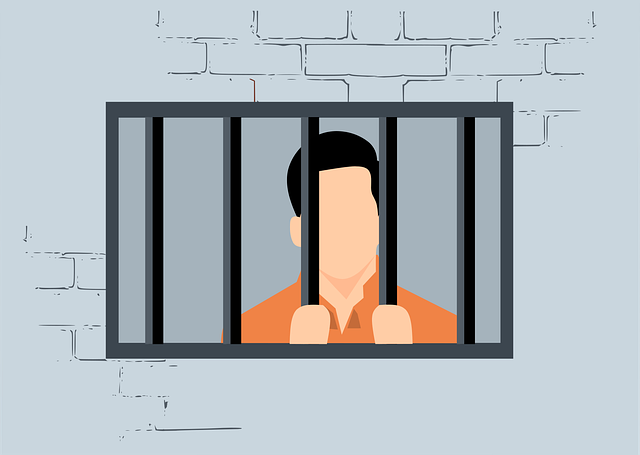Veterans accused of DUI face unique challenges due to PTSD and service-related issues. A successful defense strategy involves a tailored approach, acknowledging legal and personal barriers. By exploring alternative transportation options through veteran-specific support networks and VA services, they can demonstrate responsible behavior and mitigate charges. This holistic approach addresses unmet transportation needs, breaks stigma around PTSD and impaired driving, and ensures veterans receive necessary support while prioritizing road safety.
Veterans facing DUI charges require specialized legal support due to unique challenges, including PTSD. This article guides you through understanding and navigating military-related DUI cases with compassion. We explore the impact of PTSD on impaired driving, breaking the stigma surrounding it. Additionally, we offer insights into alternative transportation solutions for veterans and discuss tailored defense strategies, emphasizing post-arrest support. By understanding these aspects, legal professionals can provide tailored help to our nation’s heroes.
- Understanding Veteran's DUI Charges: A Unique Perspective
- The Impact of PTSD on Impaired Driving: Breaking the Stigma
- Exploring Alternative Transportation Solutions for Veterans
- Legal Rights and Defense Strategies for Military-Related DUI Cases
- Building a Compassionate Defense: Supporting Veterans Post-Arrest
Understanding Veteran's DUI Charges: A Unique Perspective

Veterans facing DUI charges often find themselves in a unique situation, and understanding their options is crucial. In addition to the legal implications, veterans may have specific challenges related to their service history. For instance, post-traumatic stress disorder (PTSD) or other mental health concerns could contribute to impulsive decision-making or impaired judgment, leading to a DUI offense. It’s essential to consider these factors when crafting a defense strategy.
A tailored approach is key here, focusing not just on the legal aspects but also addressing the underlying issues. This may include exploring alternative transportation options that show responsible behavior and a commitment to recovery. Veterans’ support networks, such as fellow service members or specialized programs, can play a vital role in offering assistance during this challenging time.
The Impact of PTSD on Impaired Driving: Breaking the Stigma

Post-Traumatic Stress Disorder (PTSD) is a hidden yet significant factor contributing to impaired driving among veterans. The condition, often associated with military service, can lead to severe anxiety, flashbacks, and sleep disturbances, making it challenging for individuals to make safe decisions on the road. When coupled with substance use, PTSD symptoms may exacerbate the effects of alcohol or drugs, leading to impaired judgment and reflexes. This complex interplay demands tailored support and understanding from legal and healthcare professionals.
Breaking the stigma surrounding PTSD and impaired driving is crucial. Many veterans might avoid seeking help due to concerns about their military record or societal perceptions. Providing accessible Alternative Transportation Options can be a game-changer. These options include designated drivers, ride-sharing services, or veteran-specific support networks that offer transportation assistance. By promoting these alternatives, communities can empower veterans with PTSD to make responsible choices while ensuring road safety.
Exploring Alternative Transportation Solutions for Veterans

Many veterans face unique challenges when it comes to managing their DUI (Driving Under the Influence) charges, and one crucial aspect often overlooked is their transportation needs. Exploring alternative transportation solutions can be a game-changer for veterans facing legal repercussions. Given the physical and mental health issues that veterans may encounter, traditional modes of transport might not always be feasible or safe.
This is where veteran-specific support comes in, offering tailored assistance with accessible and reliable alternative transportation options. These could include specialized services that cater to veterans’ specific requirements, ensuring they can attend court hearings, therapy sessions, or any other appointments without the worry of driving under impaired conditions. Such solutions not only help veterans navigate their legal matters but also promote their overall well-being by providing a safe and supportive network.
Legal Rights and Defense Strategies for Military-Related DUI Cases

When a veteran faces a DUI charge, understanding their legal rights and available defense strategies is crucial. Military service members have unique circumstances that can impact their cases. For instance, they may have been administered field sobriety tests while off-base or faced immediate arrest upon returning from deployment, leading to potential procedural errors. It’s essential for veterans to know that they are entitled to consult with an attorney specializing in military-related DUI cases.
One key defense strategy involves exploring alternative transportation options. Given the veteran’s service history, they might have access to benefits like disability compensation or medical transportation services. These resources could provide viable alternatives to driving under the influence, potentially strengthening their case and offering a compelling narrative.
Building a Compassionate Defense: Supporting Veterans Post-Arrest

After an arrest for DUI, veterans often face unique challenges. They may struggle with readjustment to civilian life, dealing with PTSD or other service-related issues, and finding adequate support systems. A compassionate defense strategy recognizes these difficulties and works towards mitigating the charges while considering their specific needs.
One key aspect of building a strong defense is offering alternative transportation options. Many veterans have access to benefits like VA healthcare and disability services that could provide resources for reliable, safe transportation alternatives post-arrest. Exploring these options ensures they receive the help they need without compromising their well-being or facing harsher legal consequences.
Veterans facing DUI charges require specialized support due to unique challenges, including PTSD. By understanding the impact of PTSD on impaired driving and leveraging tailored defense strategies, we can break the stigma and ensure veterans receive compassionate treatment post-arrest. Exploring alternative transportation options, such as those discussed in this article, is a crucial step towards supporting our nation’s heroes both before and after legal encounters.






